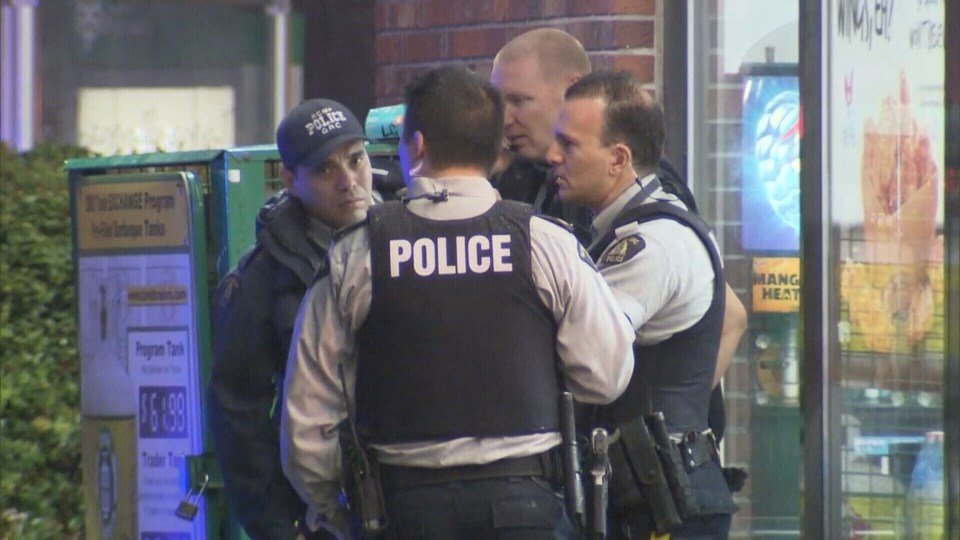A B.C. Supreme Court ruling has shed more light on the moments that led up to a fatal stabbing at a Burnaby karaoke bar in 2017.
Earlier this month, Justice Janice Dillon found Lloyd Jay So guilty of second-degree murder in the death of 38-year-old Burnaby resident Joong Kwan Kim at OB’s Cabin on Sept. 19, 2017.
By midnight on that day, Kim’s body lay in a hallway at the club riddled with stab and slash wounds inflicted with a 10-inch kitchen knife to his cheek, neck, chest, groin, back, arm and hands, according to Dillon's April 13 ruling.
One of the wounds went through three left ribs and into his heart, while another penetrated his right lung, the ruling said.
At trial, So, a father of two from Surrey who was 36 years old at the time of the killing, didn’t deny he had inflicted the wounds and taken Kim’s life.
Instead, his lawyer, Kenneth Beatch, argued So hadn’t had the guilty mind needed for murder because he had been in a “dissociative state” and was therefore not guilty due to the state of automatism.
Beatch also argued a combination of intoxication, blows to the head and “mental disruption” raised a reasonable doubt that So would have been able to form the intent needed for murder.
Chance meeting
The fateful night began with two separate groups of Korean businessmen getting together for food, drinks and business talk – So’s group in Vancouver and Kim’s group in Coquitlam.
Both parties then decided to end the night at OB’s Cabin, a club located at the time below Sushi Oyama at 5152 Kingsway in Burnaby.
They had been seated in separate rooms, but, at one point, So came into the other room and tried to get one of Kim’s associates to go outside with him to fight.
So testified the man had glared at him in the washroom, but the man testified he hadn’t been in the washroom, and photos of the washroom’s layout showed the encounter couldn’t have happened the way So described it.
Kim told So to “f**k off,” and an ensuing altercation saw So throw a punch at Kim and Kim punch back.
So was then overpowered, punched and kicked by the three men in Kim’s group.
So left the room but returned moments later wielding a long knife from the club’s kitchen.
A waiter who tried to grab the knife from him sustained a cut to his middle finger.
Another man in Kim’s group was also injured in the attack, but Dillon concluded Kim had been So’s target.
Yelling “die,” So stabbed and slashed Kim repeatedly.
So was arrested at the 7-Eleven store nearby thanks to a designated driver who recognized him as a previous customer and saw him leave the scene with a bloody scratch on his face and blood on his shoes in a Yellow Cab.
‘Not so intoxicated’
At trial, Beatch argued So couldn’t remember events surrounding the killing and had been so impaired by alcohol that it raised a reasonable doubt about his intent to murder.
The Crown, however, argued So’s actions before, during and after the stabbing showed he was making goal-oriented decisions and was acting deliberately and therefore intentionally.
Dillon agreed.
“So got angry and then exacted lethal revenge on Kim,” she said. “He was not so intoxicated or mentally impaired that he didn’t appreciate the consequences of his actions. He stabbed Kim and then continued stabbing Kim, yelling ‘die,’ as Kim tried to get away. After considering the level of intoxication, So’s mental condition, So’s actions before, during and after the event, possible provocation, and all of the other evidence, there is only one conclusion. When So stabbed Kim, he meant to cause his death and meant to inflict bodily harm that he knew was likely to cause death and was reckless as to whether death ensued.”
Dillon found So guilty of second-degree murder.
Second-degree murder carries a mandatory sentence of life in prison with no parole eligibility for between 10 and 25 years.
At a sentencing hearing set for May 20, Dillon is scheduled to rule on how long it will be before So is eligible for parole.



